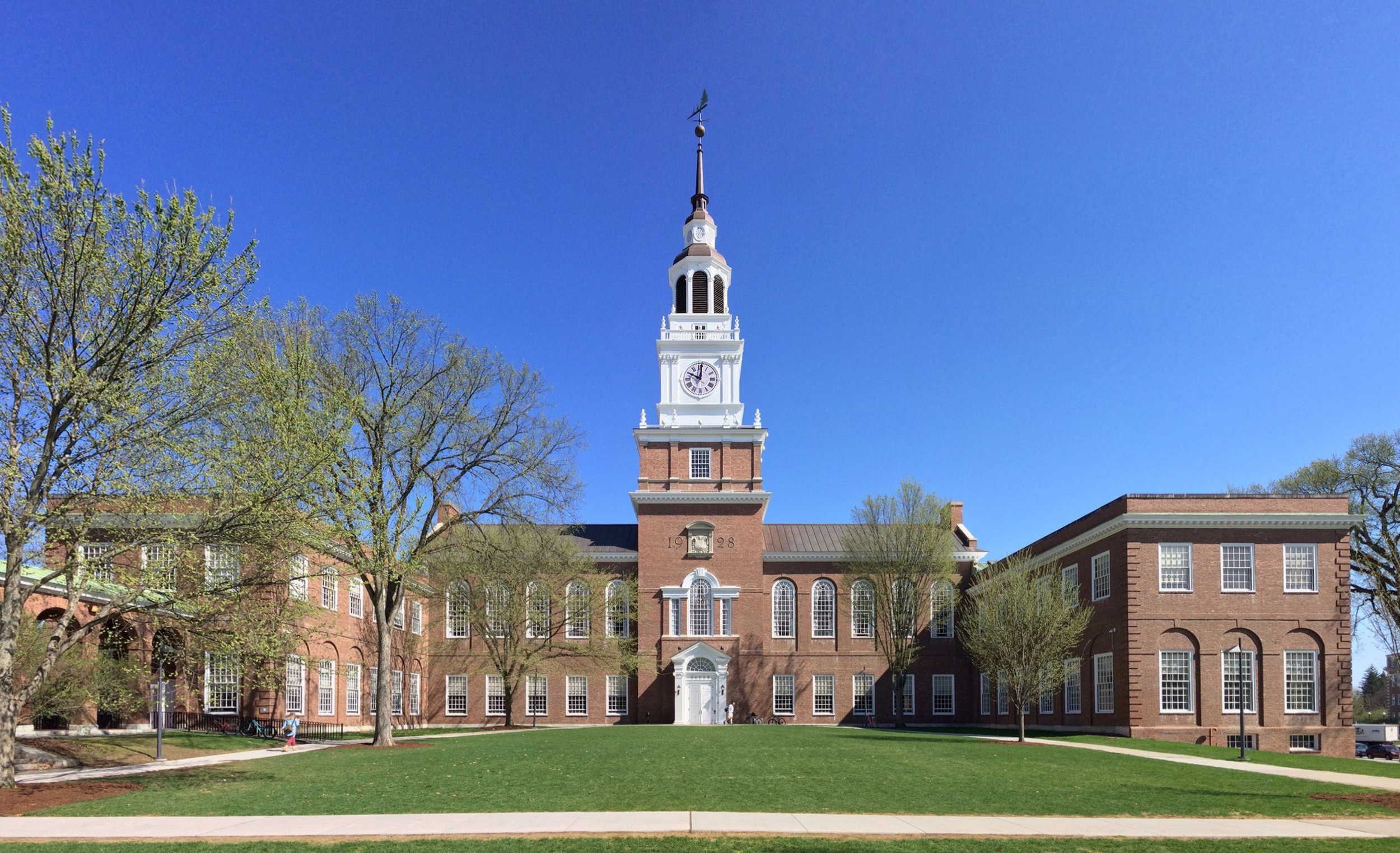David Warsh: AI firms and news publishers are dickering over revenue sharing
Baker Library at Dartmouth College
Dartmouth College’s Kiewit Computation Center, cutting edge when it was built, in 1966, and torn down as outdated, in 2018
From Cantor’s Paradise:
“The Dartmouth (College) Summer Research Project on Artificial Intelligence was a summer workshop widely considered to be the founding moment of artificial intelligence as a field of research. Held for eight weeks in Hanover, New Hampshire in 1956 the conference gathered 20 of the brightest minds in computer- and cognitive science for a workshop dedicated to the conjecture:
"..that every aspect of learning or any other feature of intelligence can in principle be so precisely described that a machine can be made to simulate it. An attempt will be made to find how to make machines use language, form abstractions and concepts, solve kinds of problems now reserved for humans, and improve themselves. We think that a significant advance can be made in one or more of these problems if a carefully selected group of scientists work on it together for a summer."
-- A Proposal for the Dartmouth Summer Research Project on Artificial Intelligence (McCarthy et al., 1955)
Somerville, Mass.
Why the speed with which artificial intelligence technologies have been sprung on the world? The answer may have something to do with the model that AI companies have in mind for the most potentially lucrative among their new businesses. Once again it seems to have to do mostly with advertising.
As a result, the newspaper business, broadly defined to include data-base/software businesses such Bloomberg, Reuters and Adobe, is taking stock of itself and its prospects as never before. Readers are learning about the capabilities and limitations of generative artificial intelligence engines, which can produce on demand Wiki-like articles containing detailed but not necessarily dependable information. In the bargain, we may even learn something important about the systems of industrial standards that govern much of our lives.
Those implications emerged from a Financial Times story other week that Google, Microsoft, Adobe and several other AI developers have been meeting with news company executives in recent months to discuss copyright issues involving their AI products, such as search engines, chatbots and image generators, according to several people familiar with the talks.
FT sources said that publishers including News Corp, Axel Springer, The New York Times, The Financial Times and The Guardian have each been in discussions with at least one major tech company. Negotiations remain in their early stages, those involved in them told the FT. Details remain hazy: annual subscriptions ranging from $5 million to $20 million have been discussed, one publisher said.
This much is already clear: Media companies are seeking to avoid compounding the mistakes that allowed Google and Facebook to take over from print, broadcast and cable concerns the lion’s share of the advertising business, in a wave of disruption that began around the start of the 21st Century.
A major problem involves avoiding further concentration among media goliaths. At stake is the privilege of decentralized newspapers, competing among themselves, to remain arbiters of democracies’ provisional truth, the best that can be arrived at quickly, day after day.
Mathais Döpfner. whose Berlin-based media company owns the German tabloid Bild and the broadsheet Die Welt, told FT reporters that an annual agreement for unlimited use of a media company’s content would be a “second best option,” because small regional or local news outlets would find it harder to benefit under such terms. “We need an industry-wide solution,” Döpfner said. “We have to work together on this.”
The background against which such discussions take place is copyright law. Obscured is the role frequently played by privately negotiated industry standards.
Behind the scenes talks will continue. But the changing nature of advertising-based search is a breaking story. Newspapers remain free to take their case to the public, in hopes of government intervention of unspecified sorts.
The adage applies about lessons learned from experience: fool me once, shame on you; fool me twice, shame on me.
David Warsh, a veteran columnist and an economic historian, is proprietor of Somerville-based economicprincipals.com, where this column originated.
#David Warsh
#artificial intelligence

